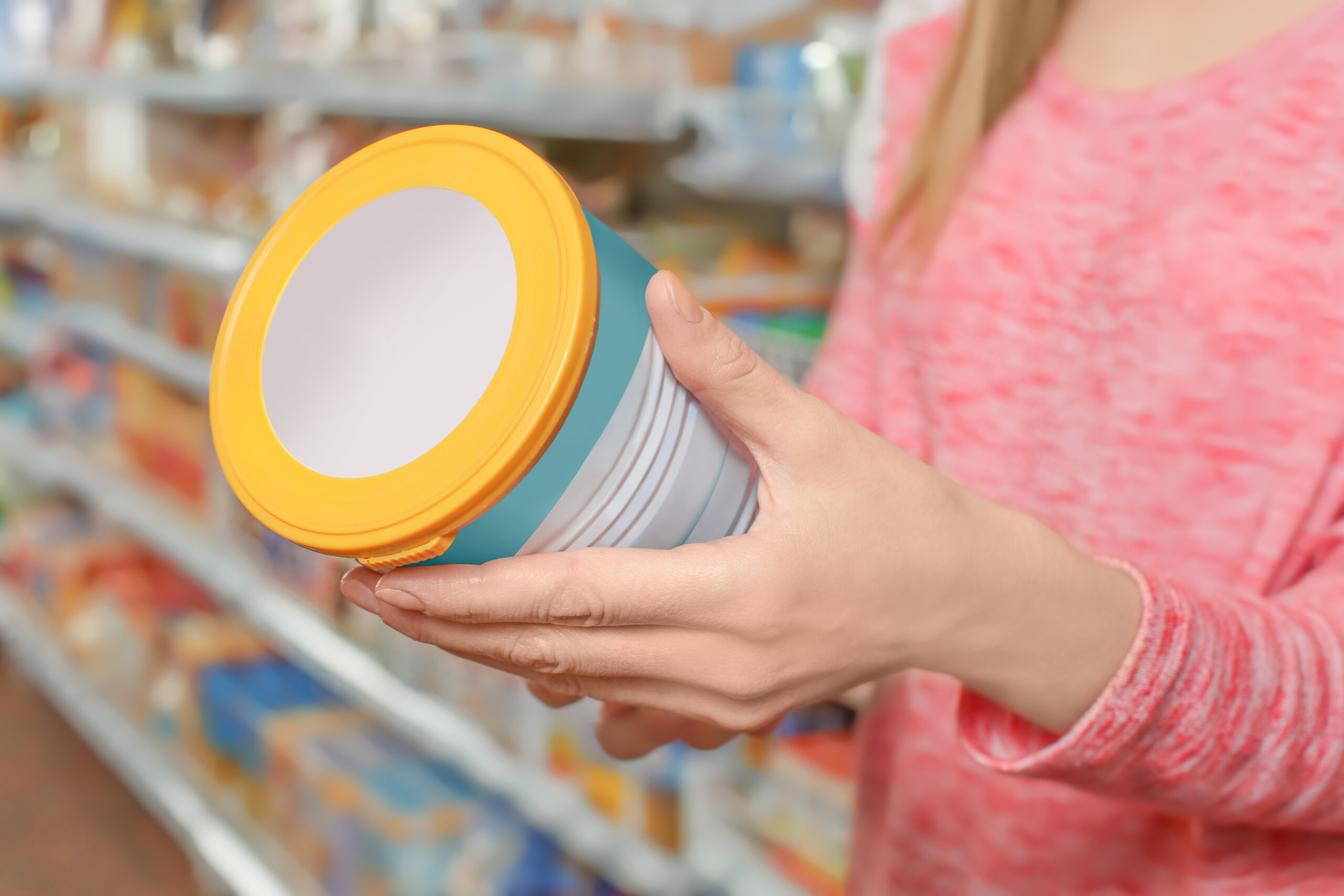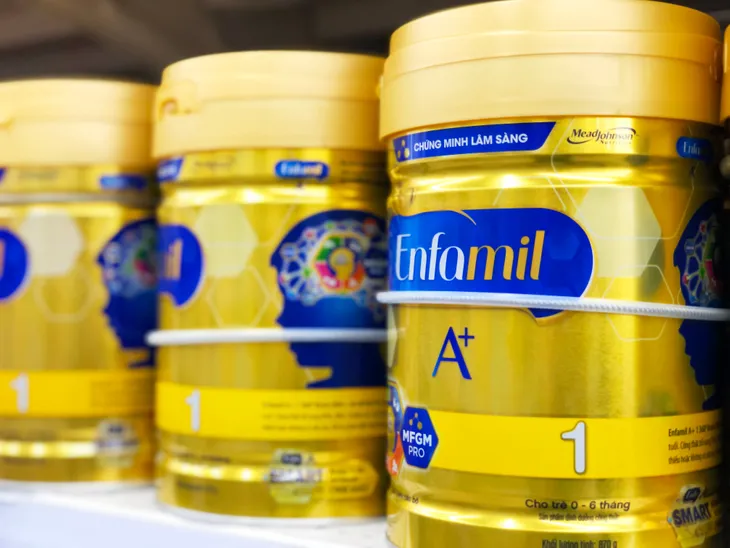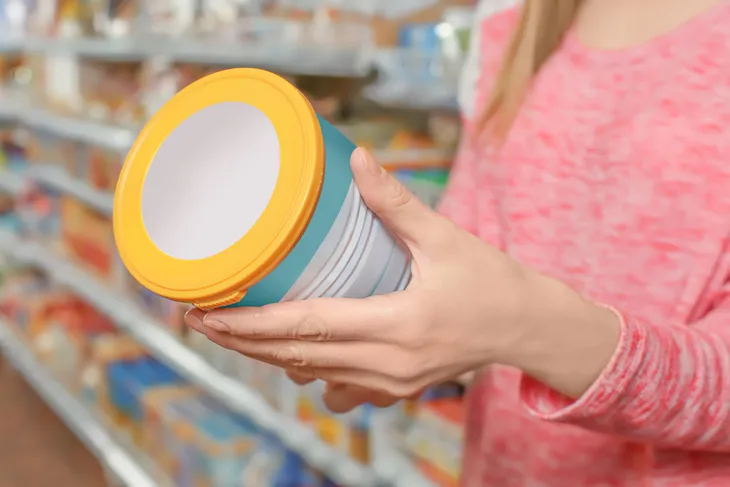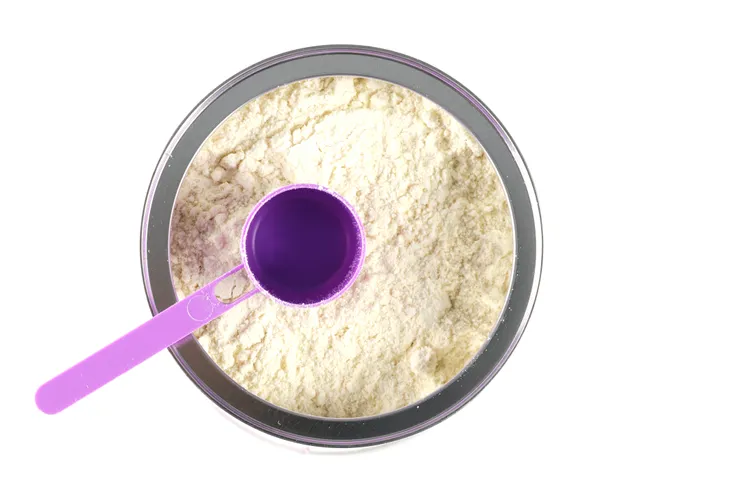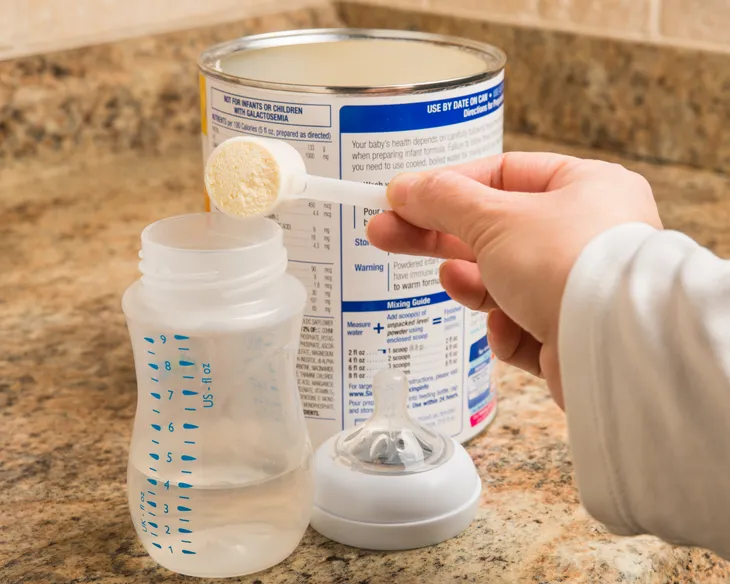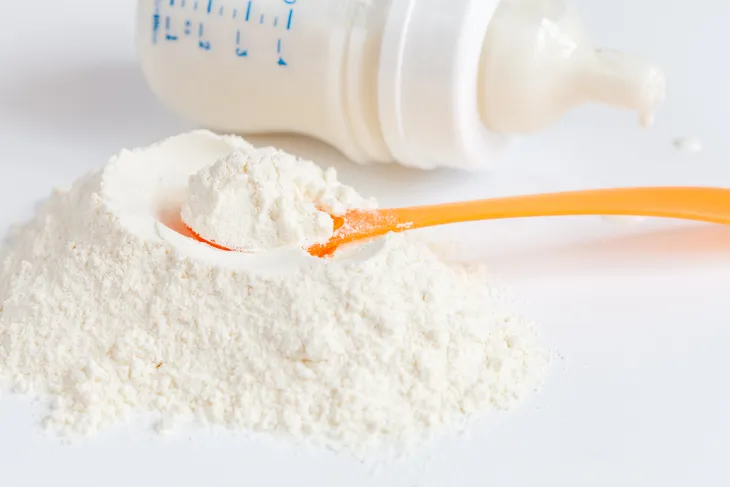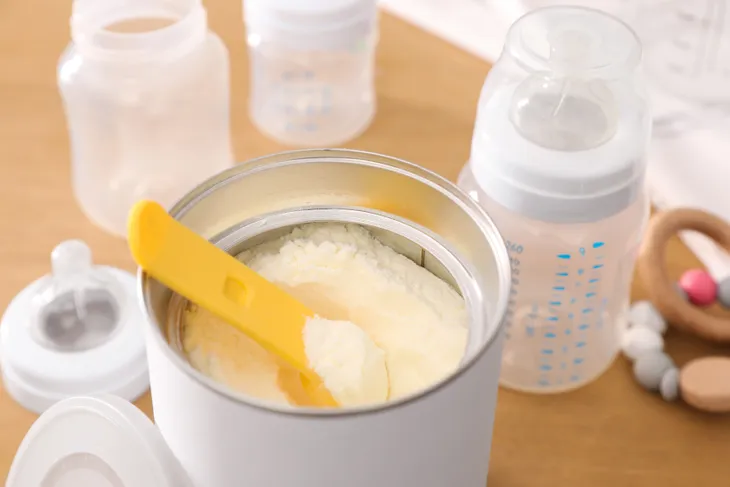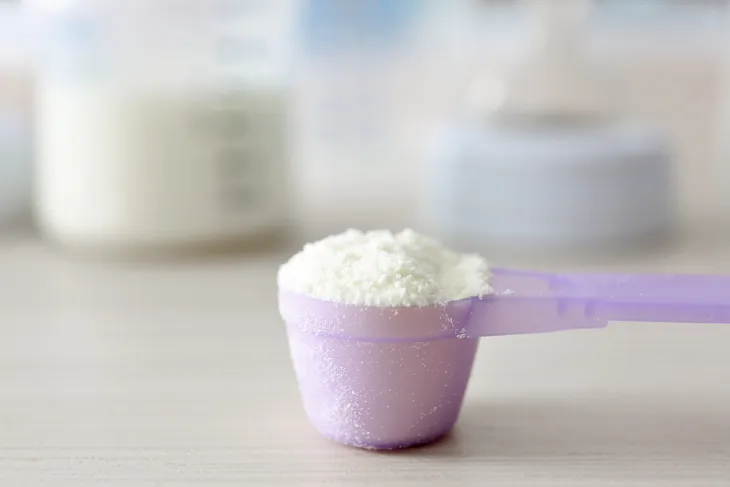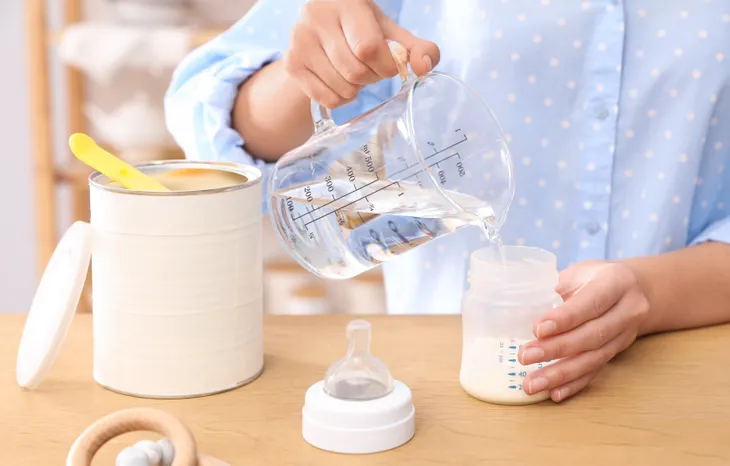- The baby formula shortage stems from the closure of the Abbott Nutrition Facility, product recalls, labor shortages, and supply chain issues.
- Parents should look for formula in smaller stores, food banks, small neighboring cities or towns, as well as online.
- Do not feed a baby homemade formula, never dilute formula to make it last longer, and only purchase formula directly from the manufacturer, known stores, or reputable markets.
- If you cannot find baby formula anywhere, you need to call your doctor immediately. They will help find supply or consult on a safe short-term substitute.
Feeding a baby isn’t easy for some parents. There are a number of things that can go wrong when it comes to nursing or feeding in general. Some babies are born with health conditions that require specific dietary needs, while others refuse to nurse or have difficulty latching. Mother’s can struggle with low supply or have to return to work early. This is where formula comes into play.
We’ve all heard the saying, “fed is best.” It doesn’t matter if it’s through breastmilk or formula, the most important thing is to keep them fed in order to sustain their growth and development. Unfortunately, the Abbott formula recall, coupled with pandemic shortages, has created a baby formula shortage making it difficult for parents who rely on formula to feed their babies.
We’ve created a list of baby formula’s that are currently available online, as well as some important tips to help parents navigate the current formula shortage…
Why is the Formula Shortage Happening?
The current formula shortage is affecting families across the country. Parents have been reporting empty shelves in local stores spanning all different brands including Gerber, Enfamil, Similac, and others. So, why is this happening?
The main cause is the closure of Abbott Nutrition’s facility in Sturgis, Michigan. This facility produces a large portion of the country’s baby formula.The Abbott Nutrition’s facility closure was due to a recall of several powdered infant formulas including Similar, Alimentum, and EleCare. The FDA was investigating complaints of bacterial infections of four infants who fell ill after consuming powdered formula from this facility.
Other contributing factors include labor shortages and supply chain issues which are residual effects from the pandemic. On top of all this, scared parents are now stockpiling, creating even less inventory in stores and online.
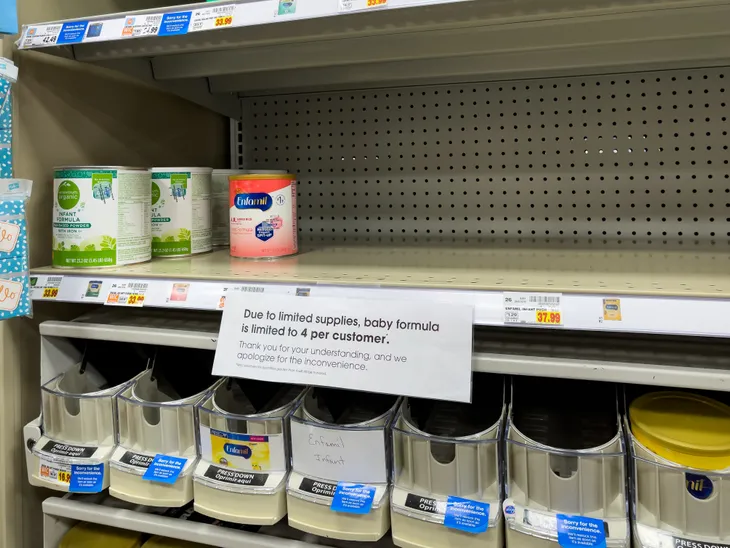 The Toidi / Shutterstock.com
The Toidi / Shutterstock.comWhere Should I Look for Formula?
Like many other American families, if you’re struggling to find formula, try searching in less densely populated areas. Think small towns or less obvious stores. Healthychildren.org suggests pharmacies, mom-and-pop shops, food banks, and small retailers. Call around to stores. Just because one store is out, doesn’t mean they all are.
Another option is to shop online. In many cases the retail stores are sold out, but the product is still available online through another retailer or directly from the manufacturer. You could also try connecting with other parents either through social media or in-person. They might be able to share tips on where to find it locally or even have extra formula on hand to share. Just make sure it has not been opened and is not past the expiry date.
Can’t find the usual go-to brand? Switching between brands of formula, including store brands, is okay. The CDC says most babies can tolerate switching brands as long as it’s done gradually. You could also switch to the liquid or ready-made version of your usual formula. If you can’t find any brand of formula that meets your baby needs, talk to your doctor.
Similac Advance Powder Baby Formula
For parents of children with no special dietary needs outside of being a growing baby, the Similac Advance Powder Baby Formula is a good go-to option. While some of the more speciality-based formulas are hard to find, this particular kind is currently in-stock at Walmart online. You can purchase a 12.4-ounce can for $17.46 through Walmart’s online website and have it shipped or go pick it up in person at some select local stores.
This formula is made for infants with no palm olein oil or artificial hormones. It helps support brain and eye development, as well as your baby’s complete nutrition for their first year.
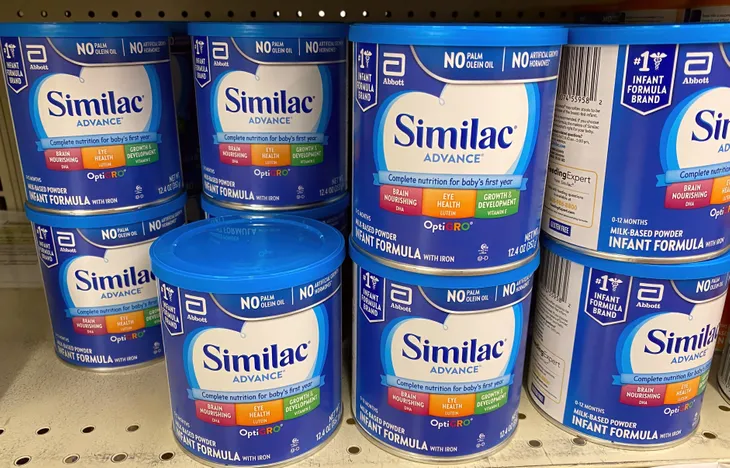 Grossinger / Shutterstock.com
Grossinger / Shutterstock.comEnfamil Gentlease A+ Powder Tub
This particular formula is geared towards babies who struggle with tummy discomfort, a common problem during the first year. For babies who do not have a lactose intolerance, but rather just tummy discomfort, Enfamil Gentlease is the perfect option. It contains partially broken down protein, reduced levels of lactose, and DHA to support normal physical, brain, and eye development.
We found this product in stock online through a the Canadian retailer London Drugs for $37.99 CAD. Unfortunately, they do not ship internationally so this product is only an option for parents living in Canada.
Gerber Good Start Gentle Pro
Gerber is a popular and well recognized brand when it comes to anything baby-related. The Gerber Good Start Gentle Pro formula is advertised as their closest product to breast milk. It’s made with easy to digest proteins and probiotics with advanced complete nutrition. According to Gerber, this formula is “modeled after the complete nutrition and gentleness of breastmilk for babies up to 12 months and now with 2′-FL HMO*.”
You can purchase this particular product through the Gerber website. Due to the national shortage they have put a temporary limit of 1 case per order so that as many babies as possible have access to this formula. Their 20-ounce single canister is available for $25.36 USD.
Gerber Good Start Extensive HA Hypoallergenic Powder
For parents who have a hypoallergenic baby, the Gerber Good Start Extensive HA powdered infant formula is available online through Walmart for $26.47 USD. You’ll get a 14.1-ounce canister of formula that can be used from birth to 12-months of age. You can have it shipped to your home, or in some cases, order online and pick it up from your local store.
It’s important to note that this baby formula is intended for children who have a milk intolerance and allergy. Parents of children who need a hypoallergenic or medical specialty infant formula are the ones who are struggling the most right now because their child cannot drink just any formula.
Nutramigen A+ With LGG Iron Fortified Infant Formula
Another great option for parents of a baby with a milk allergy or intolerance is Nutramigen. This hydrolysed formula can be used from birth and is especially helpful for babies who struggle with colic. It has been specially formulated to not cause an allergic reaction in babies with a milk allergy.
You can purchase this formula through Instacart but the original seller is Valu-Mart. One 561-gram can costs $32.95 USD. There is currently a promotion through Instacart where the first delivery is free!
Toddler Formula: Australian Goat Milk-Based Toddler Formula Powder
For those looking for toddler formula, there is an Australian goat milk-based toddler formula powder on Thrive Market. One can costs $44.99 USD. It’s important to note that this formula is for toddlers between the ages of 12 and 36-months-old. However, if parents are in a pinch and their child is nearing their 1 year birthday, the Cleveland Clinic says it offers a short term solution. Kimberly Giuliano, MD tells the source that parents should only use this solution for a short period of time, such as two-week intervals.
Another thing to note about this particular formula is that it is made with goat milk. This type of formula is not approved for babies in the United States and goat’s milk on its own is not recommended for babies because it has too much protein in their body. However, there are goat milk-based formulas registered in other countries, such as this one which is from Australia. Due to the shortage, HealthyChildren.org thinks it might be considered for accelerated improve approval by the FDA.
Avoid Unknown Online Suppliers
When purchasing formula online, only buy from reputable sources. Contact manufactures directly for online availability. If that doesn’t work or is not an option, use credible online markets like Amazon or Walmart. Do not purchase formula secondhand from unknown places or sources online. “There is a concern that folks could be marketing non-approved formulas and taking advantage of the situation,” warns Dr. Giuliano to Cleveland Clinic.
Dr. Giuliano also warns against accepting breast milk from community members or people you don’t know. While some people might have good intentions, it is impossible for parents to know whether that mother has any infections, ingested drugs, medications, or other chemicals. There’s also a concern about storage. A better option is to seek out a breast milk donor bank where donors are screened thoroughly.
Do Not Make Your Own Formula
Health experts strongly discourage making homemade formula. The biggest cause of concern is that homemade formula does not provide enough nutrients. The Cleveland Clinic warns that babies need a high amount of protein and fat to sustain their growth and development. The ratios of proteins, fats, vitamins and minerals that go into making formula are nearly impossible to replicate at home.
It can also negatively impact their immune system. While our immune system is constantly developing, most of the development occurs within the first 12 months, notes the source. “This development happens in our blood system and in our gastrointestinal tract, where we have some immune responses and some good bacteria that are growing and developing to help serve as a line of defense,” says Dr. Giuliano. The ongoing development of a baby’s immune system is what makes them more susceptible to infections and contaminated products.
Do Not Water Down Formula
Desperate parents will do desperate things to ensure their child is fed, but it’s not always what’s best for them. Never add more water to a formula than what it suggests. Do not try to dilute it in order to make it last longer. “Adding more water can cause nutritional imbalances and lead to serious health problems, such as seizures, for your baby,” warns the CDC. It can also lead to low sodium levels in the blood and other electrolyte disorders that may require hospitalization, says Healthychildren.org.
To avoid wasting supply, the CDC recommends only placing the amount of formula your baby will actually eat in the bottle.
What To Do If You Can’t Find Formula
If you cannot find formula anywhere and are unable to feed your child, call your paediatrician immediately. This is especially true for babies under the age of 6-months-old who cannot have anything other than breast milk or infant formula. A doctor can either suggest where to purchase formula or potentially provide some from their own personal stock. Be forewarned that a lot of doctors have been tapping into their formula supply because of the shortage, so don’t rely on them or be discouraged if they don’t have any.
According to the CDC, children aged 6 to 12-months-old should only drink breast milk, infant formula, or small amounts of water. If you cannot find infant formula, a child over 6-months-old can have some pasteurized (not raw), unflavored, whole cow’s milk. It’s important to note that this is only to be given for a short time. No more than a week. You need to consult with a doctor before doing this. “Cow’s milk does not have the right amount of nutrients your baby needs, has too many proteins and minerals for your baby’s kidney’s to handle, and in some cases, may lead to intestinal blood loss,” warns the source.
If your child has hypoallergenic or medical speciality infant formula, you need to talk to a doctor about any potential safe alternatives.
